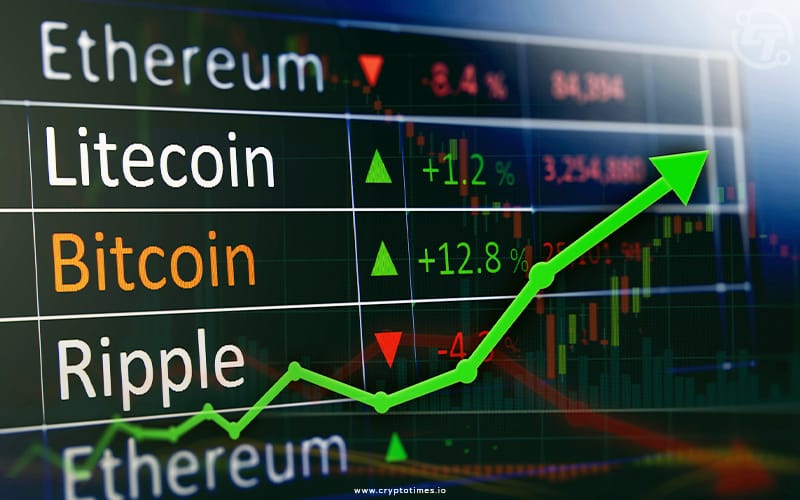In Brief:
- IMF research states that the values of crypto assets are progressively mimicking those of stocks.
- This phenomenon limits their potential risk diversification benefits and increases contagion risk across financial markets.
- IMF economists proposed a global regulatory framework to alleviate the financial stability risks posed by the crypto ecosystem.
The IMThe IMF says the correlation of crypto assets’ prices with traditional holdings like stocks has increased dramatically, limiting their potential risk diversification benefits and increasing the danger of contagion across financial markets.
According to a recent IMF research report, as more people add risk assets to their portfolios post-COVID, the values of crypto assets like Bitcoin and Ethereum are progressively mimicking those of stocks.
Crypto assets were considered to help diversify risk and function as a hedge against other asset class fluctuations.
After the unprecedented central bank crisis reactions of early 2020, this altered. Cryptocurrency prices and stock prices in the United States have both risen as a result of easy financial conditions and increased investor risk appetite.
In the year 2017–19 Bitcoin returns did not move in unison with the S&P 500, the U.S. benchmark stock index. The daily correlation coefficient was only 0.01, but it increased to 0.36 in 2020–21 as the assets moved more in sync, increasing or decreasing at the same time.
In emerging market economies, for example, the correlation between returns on the MSCI emerging markets index and Bitcoin was 0.34 in 2020–21, a 17-fold increase from previous years.
Bitcoin’s connection with stocks has risen above that with other assets such as gold, investment-grade bonds, and major currencies, indicating that, contrary to popular belief, risk diversification benefits are minimal.
The report’s authors, IMF economists Adrian Tobias, Tara Iyer, and Mahvash S. Qureshi proposed a global regulatory framework to guide national legislation and supervision and alleviate the financial stability risks posed by the crypto ecosystem.
The IMF last month published a blog urging governments for “comprehensive, consistent, and coordinated” regulation of the crypto industry. It also added that crypto service providers like exchanges should be licensed or authorized.
The IMF emphasized that data gaps generated by the anonymity of such assets and constrained global standards must be quickly filled in order to monitor and understand the rapid advances in the crypto ecosystem and the risks they pose.






